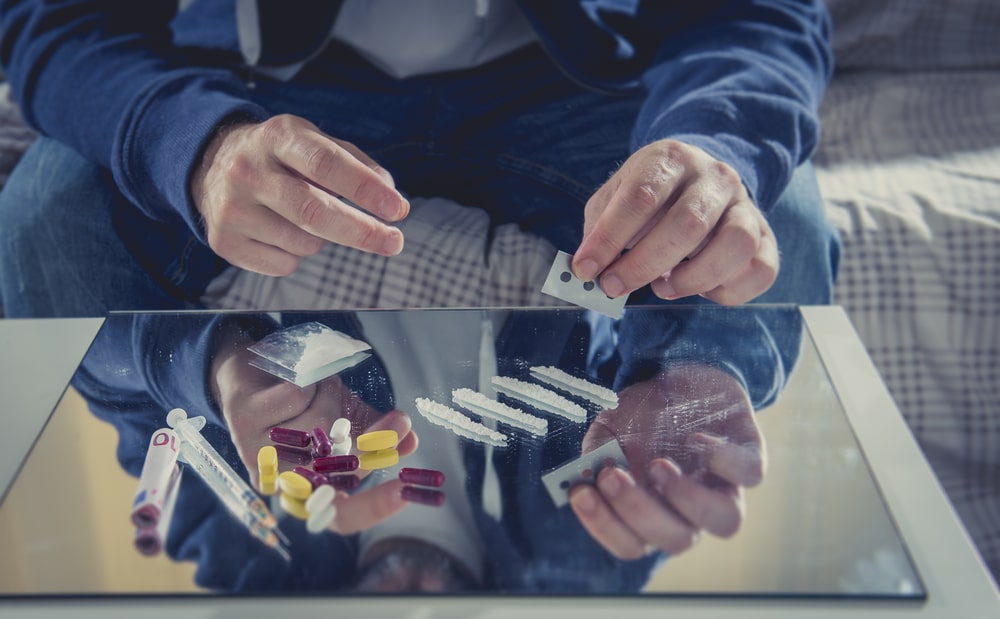
One of the best ways to look at drug addiction is to think of it as an uninvited guest. No one wants a substance use disorder to come into their lives and settle in for an extended stay. No one desires this any more than they would like to have diabetes, heart condition, or any other serious health issue. But addiction, nonetheless, imposes its presence, gradually making itself at home and overstaying its welcome, refusing to leave even when the negative consequences become apparent.
Comparable to an uninvited guest who overstays their welcome, addiction's entry is unassuming, but its effects are far-reaching and damaging. Let's delve into how drug addiction slips into your life, disrupts your peace, and why evicting this invisible enemy often requires professional help.
Substance abuse sometimes enters one's life like an uninvited guest. Other times, it's invited by one and unwanted by another (family members, spouses, etc.). Either way, the initial encounter often takes the form of curiosity or experimentation.
An individual may try a substance once to see what it's like—much like they'd entertain a guest for a brief moment out of politeness. The initial encounter may not immediately raise alarm bells. However, this phase marks the beginning of a journey that can lead to hidden consequences.

This stage is marked by the brain's response to the addictive substance or behavior, where the initial curiosity or experimentation gives way to a heightened sense of pleasure and comfort. It can be likened to when an uninvited guest feels at ease and gradually becomes more comfortable in their surroundings.
Alcohol or drug use activates the brain's reward system, releasing neurotransmitters like dopamine that create pleasure and euphoria. Just as the uninvited guest appreciates the comforts of their new surroundings, the brain starts associating the substance or behavior with a pleasurable experience.
As the brain experiences the surge of pleasure from the substance or behavior, it reinforces one's inclination to repeat the action. This reinforcement parallels the process of a guest finding specific amenities in their host's house that make them want to stay longer. The brain begins to form connections between the stimulus (the addictive substance or behavior) and the pleasurable feelings, leading to a desire to repeat the experience.
At this point, the individual starts to use the addictive substance or engage in the behavior more frequently. The pleasurable sensations felt during the initial encounters become a sought-after source of comfort, leading to an increased desire to recreate those feelings.
The guest-turned-intruder's presence becomes more noticeable as the addiction disrupts an individual's life. What was once an occasional indulgence becomes a more frequent occurrence. The substance or behavior is no longer a choice but a compelling need. Responsibilities and relationships become overlooked or compromised as the individual's attention becomes increasingly consumed by destructive habits.
As the uninvited guest takes over, addiction tightens its grip. Just as the guest starts dictating the household's schedule, addiction dictates the individual's life. The regular dose of pleasure the brain receives from the addictive substance or behavior creates a reliance that's difficult to break. One may try to quit or reduce their addictive behavior, but withdrawal symptoms, cravings, and deeply ingrained patterns can make this a daunting task.

Some uninvited guests might promise to leave but then linger longer. And that's similar to what happens when one is in pursuit of breaking the cycle of addiction. They might successfully abstain for a period, but the allure of the addictive substance or behavior and triggers like stress or social situations can lead them back into old habits. These relapses can be discouraging and make breaking free even more challenging.
The rewiring of the brain caused by addiction makes it extremely difficult to quit without professional help. Addiction affects multiple aspects of a person's life, from brain chemistry to behavior, emotions, and decision-making. Seeking assistance from addiction specialists and professionals can help understand these changes, develop effective strategies, and provide the necessary support to reclaim one's life from the grip of addiction.
The struggle to break free from addiction echoes the challenge of convincing an unwelcome guest to leave. Despite the individual's sincere attempts, addiction often clings tenaciously, leading to cycles of relapse and self-criticism. Experts use different treatment options that might involve a combination of therapies and medications to help treat addiction. These may include:
Behavioral therapies are evidence-based approaches that modify addiction-related behaviors, thoughts, and emotions. These therapies address the psychological aspects of addiction and help individuals develop healthier coping strategies. Examples of behavioral therapies include:
MAT combines medication with behavioral therapy to treat substance use disorders. Medications like Methadone, Buprenorphine, Naltrexone, Acamprosate, and Disulfiram help manage withdrawal symptoms, reduce cravings, and stabilize brain chemistry. MAT is particularly effective for opioid and alcohol addiction.
Addiction affects not only the individual but also their loved ones. Family therapy involves the family members in the treatment process to address interpersonal dynamics, communication, and support systems.
Holistic treatments consider the individual as a whole, focusing on physical, mental, and emotional well-being. These approaches complement traditional therapies and promote overall health, and include:
The road to recovery is characterized by rediscovery, growth, and renewal. Much like reclaiming a space after the departure of an unwanted guest, individuals in this phase work on rebuilding their lives by joining support groups, nurturing relationships, embracing healthier habits, and creating a future filled with positivity and meaning. The process involves personal development, self-compassion, and a commitment to a life free from the shadow of addiction, demonstrating the resilience and strength of the human spirit in overcoming challenges.
If you or someone you know is struggling with drug use, contact a healthcare professional, counselor, rehabilitation center, or addiction support helpline for guidance, assistance, and resources.